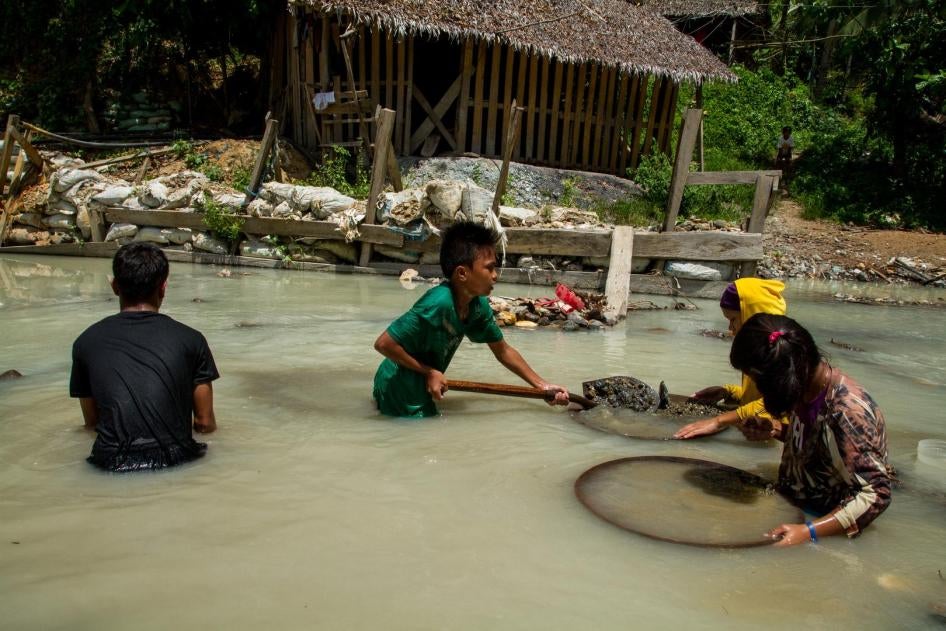(London) A major jewelry industry group has made significant improvements to its process for certifying its members when it comes to ensuring human rights risks are addressed in supply chains, 27 civil society groups said today in an open letter to the industry group. But the organizations highlighted serious concerns with how the certification process will be carried out and urged the industry group, the Responsible Jewellery Council (RJC), to address them.
The Responsible Jewellery Council includes over 1,100 member companies along the jewelry supply chain. In April 2019, the RJC published a new version of its certification standard, the “Code of Practices,” following consultation and input from industry and civil society groups. All RJC members are required to comply with the standard and are audited against it two years after joining.
“It is good news for human rights protection that the Responsible Jewellery Council will now require member companies to put into practice the international norm on responsible sourcing,” said Juliane Kippenberg, associate child rights director at Human Rights Watch. “But it is a source of concern that the Responsible Jewellery Council has put implementation for the diamond industry on a slower track, risking coming across as soft on that part of the industry.”
The revised standard now requires Responsible Jewellery Council members to exercise due diligence over their supply chains in accordance with the leading international norm on responsible mineral sourcing, the Due Diligence Guidance for Responsible Supply Chains of Minerals by the Organization for Economic Cooperation and Development (OECD). Under the OECD guidance, companies must take the following five steps: set up management systems for due diligence; identify human rights risks in their supply chains; respond to the risks found; carry out an independent, third-party audit; and report publicly about the steps taken.
The RJC’s current phase-in plan for carrying out the new certification standard foresees that diamond and colored gemstone companies’ existing practices will not be fully assessed against the standard until April 2021 at the earliest. Certification can be granted for up to three years, meaning that some members may not be fully checked for compliance until 2024.
Furthermore, a review of the standard and its assessment process is scheduled for after April 2021, creating additional uncertainty over whether and when diamond and gemstone companies will be checked for full compliance. Companies in other jewelry supply chains only have a transition period of one year, until April 2020.
Other concerns highlighted by the groups include what they consider to be inconsistent reporting requirements under the new standard. One provision calls for public reporting, while another one provides for reporting solely to stakeholders. The groups also expressed concern that the certification process remains opaque and “could allow member companies to pursue irresponsible business practices.”
The groups recommended requiring companies to publish audit summaries, including information on all facilities visited, areas of non-compliance, a description of any identified risks, and the specific measures taken to assess and mitigate risks. They also said that the Responsible Jewellery Council should ensure that all members up for certification beginning in April 2020 are audited against the new Code of Practices, including the full five-step framework required by the OECD’s Due Diligence Guidance.
“The Responsible Jewellery Council should make its audit program stronger and more transparent,” Kippenberg said. “It is essential for consumers to understand what steps have been taken to ensure that the jewelry they buy wasn’t made at the expense of the workers’ human rights and safety.”








